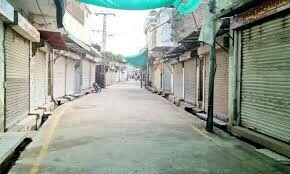ISLAMABAD: In what appears to be a positive achievement of the previous government, Pakistan’s trade regime has been placed among the club of leading countries in the world to have avoided using any anti-trade measures in the last five years.
These findings were made in the 10th Report on Potentially Trade-Restrictive Measures between October 2008-June 2013 released by the European Commission Directorate General for Trade, which appreciated Islamabad’s efforts for avoiding use of any anti-trade measures with global partners in general and EU in particular.
The report analysed the major economies of the world in terms of trade facilitation at a time when the world was facing serious financial crisis. No trade restrictive measures were taken in the reported period making Pakistan’s trade regime freer.
In the Eastern Europe, Belarus shared this position with Pakistan as against emerging and developed economies which adopted restrictive trade measures.
The report evaluate the trade regimes of 31 economies with Argentina on top of the list with 147 trade restrictive measures taken followed by Russia with 99 score. The report examined these economies in terms of border barriers, behind the border measures, public procurement, services and investment barriers, export restrictions, measures to stimulate exports and internal stimulus measures and others.
Between October 2008-June 2013, Pakistan did not taken any trade restrictive measures on these parameters, claims the report. The only exception is the slapping of ban one exportable products from the country.
But contrary to Pakistan’s position, the last five years has witnessed the revival of trade restrictive measures in various countries globally either to protect the consumers’ interests or industries.
Argentina has increased border barriers by 121 times, followed by Russia 64, South Africa 23, Indonesia 22, Brazil 18 and India 12, respectively. Border barriers emerged the leading weapon to punish imports flows in the country.
Border measures include numerous ad-valorem and specific duty increases, reference import values and minimum import price setting, burdensome licensing, non-compliance with WTO-negotiated tariff rates, special border fees, tariff quotas (including in zero amounts resulting in a total ban).
The European Commission report came at a time, when Pakistan was also considering opening its border for the Indian goods subject to condition that New Delhi should do away with barriers to free trade.
To second the argument of Pakistani business community complaining of non-tariff barriers in the Indian trade regime, the European Commission also highlighted some 12 barriers which restricted entry of goods into the Indian market.
Since October 2008 till June 2013, 688 trade restrictive measures were taken by the leading economies of the world.















































